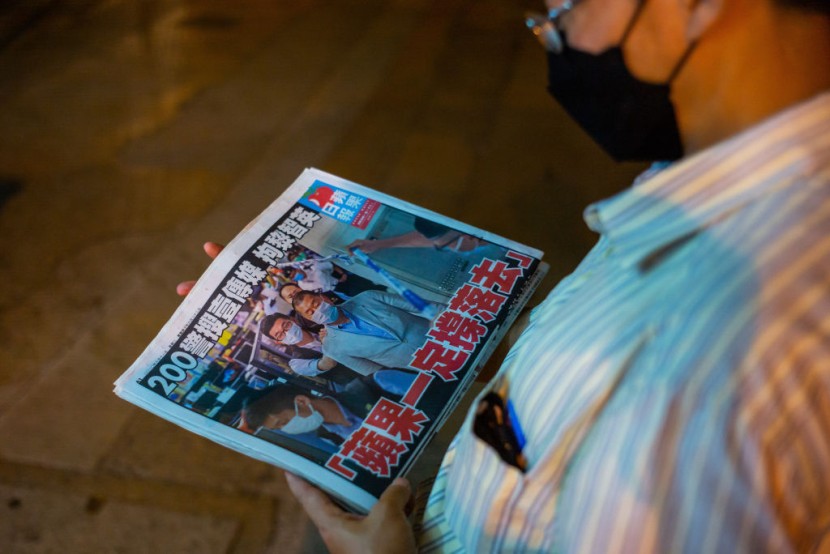
China has intensified its efforts to rid the internet of fake news and rumors, closing more than 100,000 social media accounts that misrepresented news broadcasters and media outlets, according to the country's cyberspace regulator.
Cyberspace Administration of China (CAC) launched a special campaign to clean up online information, with a focus on social media accounts that spread "fake news" and impersonate state-controlled media.
China Cracks Down on Fake News
Since April 6, the regulator has deleted 107,000 accounts of false news entities and news anchors and 835,000 pieces of fake news content. The cleanup comes as China and countries around the world confront an onslaught of online fake news coverage, with many instituting laws to punish offenders, as per US News.
However, news dissemination on Chinese social media is already tightly regulated, with platforms such as Twitter-like Weibo favoring topic hashtags produced by state media and censoring hashtags on issues or incidents deemed sensitive by Beijing, even if they go viral.
The CAC stated that its investigation uncovered accounts that posed as credible news outlets by falsifying news studio sequences and impersonating professional news presenters, creating fake anchors using artificial intelligence (AI) to mislead the public.
According to a statement published by the CAC on its website on Monday, fake news covered trending topics such as social incidents and international current affairs.
In addition to the suspension of the accounts, a total of 835,000 pieces of false news were removed during the campaign, according to data released by the administration on Monday.
The action was taken after the authority observed the frequent disruption of communication in cyberspace and received numerous complaints from netizens.
"It was discovered that some accounts pretended to be authoritative news agencies in order to mislead the public by falsifying news studios, impersonating newscasters, or abusing artificial intelligence-generated virtual anchors," the report stated.
Since the beginning of the campaign, Sina Weibo has published weekly inspection results on its official account, according to China Daily. The company removed 1,508 pieces of false news in the first week of May, and punished 1,181 accounts and 1,079 users who impersonated news anchors or agencies, according to the most recent data available on May 11.
Weibo had already established an official account for exposing those who create or disseminate rumors on its platform, as well as for requesting responses from pertinent authorities on contentious issues.
On Monday, Xi Jinping's administration listed a number of typical examples of news distortion and misinformation dissemination. One of the fake news articles targeted Hu Xinyu, a missing student whose suicide in Jiangxi province on February 2 was subsequently confirmed.
The fraudulent narrative claimed that Hu was murdered by others before the official information was released. In the time between the disappearance of the 15-year-old boy and the revelation of the truth, the administration reported in mid-February that 1,894 online accounts were punished for creating and disseminating false information about the case.
More than 70,000 pieces of information and over 2,000 accounts were removed or punished during a recent 100-day campaign led by the Ministry of Public Security. It disclosed a case in which an internet user with the surname Cao was criminally detained in Jiangxi province on suspicion of spreading allegations that Hu's corpse was a fake and that Hu's family had been kidnapped.
China vs. Artificial Intelligence
Police in northwestern China announced on Sunday that they had detained a man who admitted to using ChatGPT to create and spread fake news online.
According to the official WeChat account of the Gansu Province Police, an investigation was launched last month after authorities discovered an article on Baidu's blog-style platform Baijiahao falsely alleging that nine people had been slain in a train accident.
The posts were traced to an independent media company owned by the perpetrator, identified only by his surname "Hong," who was arrested on May 5 during a search of his residence and computer.
Gansu police accused Hong of perpetrating a "major crime" based on the suspect's admission that he prompted ChatGPT to generate a fabricated narrative based on trending social media posts in China over the past few years.
Per Yahoo, he apparently added that he had circumvented Baijiahao's duplicate check function to publish on multiple accounts he had obtained. Police acknowledged that the detention appeared to be the first instance of a private citizen being detained following the implementation of new regulations designed to combat the threat of false news posed by artificial intelligence.
The Chinese government has been keeping a close watch on AI as the prominence of bots such as ChatGPT has exploded in recent months. In February, authorities cautioned the public against "rumors" generated by ChatGPT. However, Beijing is also concerned about the role machines will play in a heavily regulated information environment.
The country's internet regulator unveiled new guidelines last month that, among other provisions, require artificial intelligence developers to ensure generated content embodies "the fundamental values of socialism and must not contain subversion of state power."
© 2025 HNGN, All rights reserved. Do not reproduce without permission.








